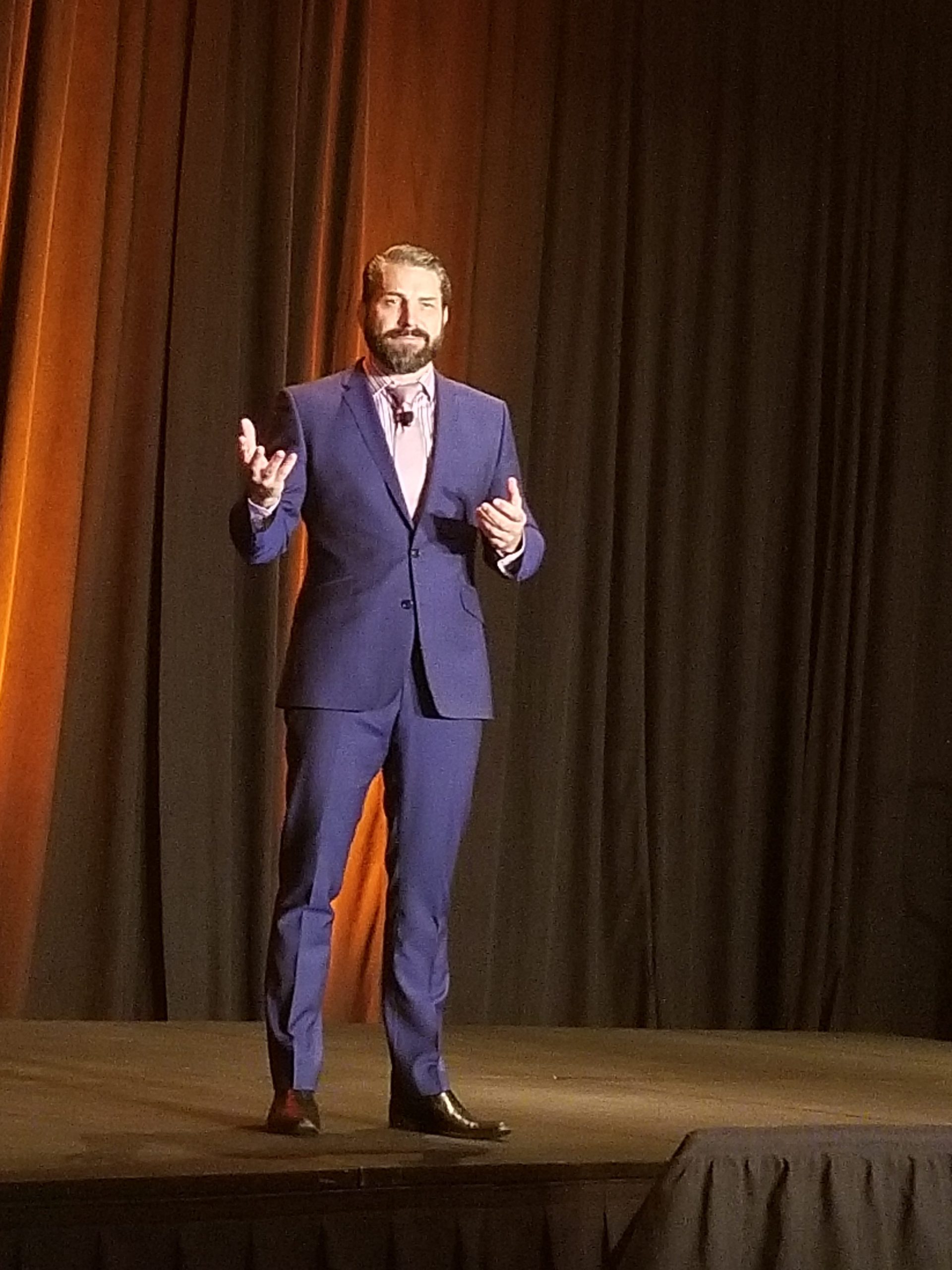“If someone doesn’t behave, we think there’s a motivation problem and we throw money at it,” said Andrew Sykes, closing keynote speaker at the 2018 Health and Benefits Leadership Conference. “But what compels us to act more than money and incentives is recognition and appreciation.”
Sykes, founder and president of Habits at Work and BRATLAB, took the whole-person wellness theme, which was threaded throughout HBLC, to another level by explaining how business habits create unhealthy employees not the other way around. If employees aren’t participating in wellness programs, employers need to step back and get to the root cause preventing participation. The blame, he said, should never be on employees, but the environment and conditions in which they work.

The fundamental human desire is to be healthy, happy and financially secure, said Sykes. But the one reason almost everyone gives for not achieving these desires is work. If employers looked at their physical environment–from food in the cafeteria to static work stations–as well as employee workloads, PTO policies and the organizational culture, they could begin to see why their employees are sick, tired and stressed.
Sykes said other barriers to well-being lie within individuals themselves. To prove this point, Sykes asked attendees to raise their hands if they could sing. Half of the more than 900 people in the room raised their hands. He then asked how many people could sing well. Laughter erupted as few people tentatively raised their hands.
Sykes then told to audience to imagine themselves at 5 years old belting out a beautiful song. As you continue to sing, someone near you makes a snide comment about singing off key, or laughs at you. The story you tell yourself from that interaction is that you can’t sing well. Over time, the story becomes, “I can’t sing at all.”
This mentality applies to employee well-being–if people think, “I can’t exercise” or “I’m incapable of losing weight,” they’ll never participate in a wellness program because they lack the confidence to try.
Benefits professionals, said Sykes, need to implore other leaders to not only change the built-in environment of the business but also its culture.
“Culture is nothing more or less than the sum of the habits that we practice as employees every day. Culture change and habit change are two sides of the identical coin,” he said.
Sykes also pointed out that it’s imperative that business leaders stop thinking about employees as the problem. They need to take responsibility for the design of the business because “business designs, not wellness programs and insurance plans, explain whether people will practice healthy habits at work,” he said.

